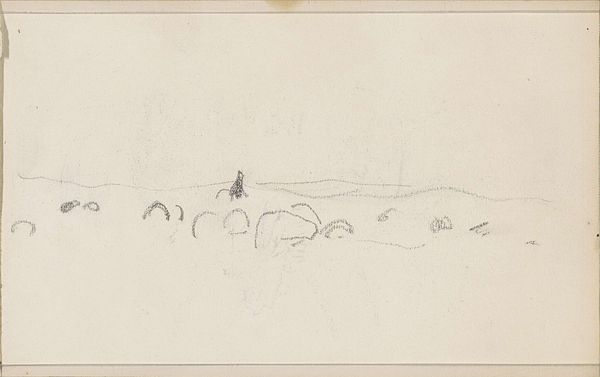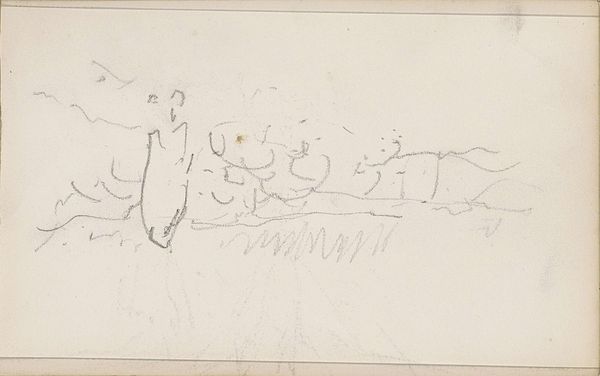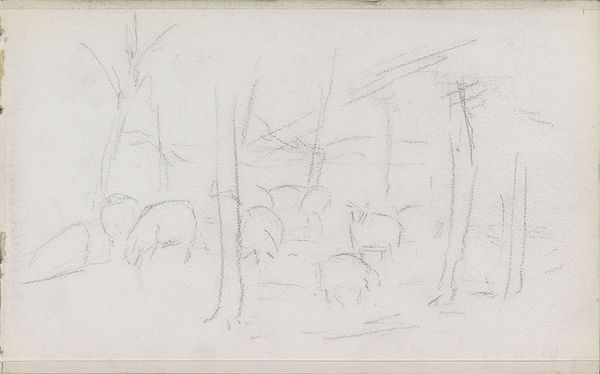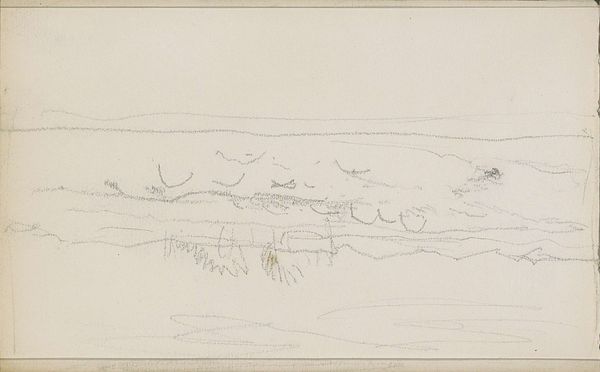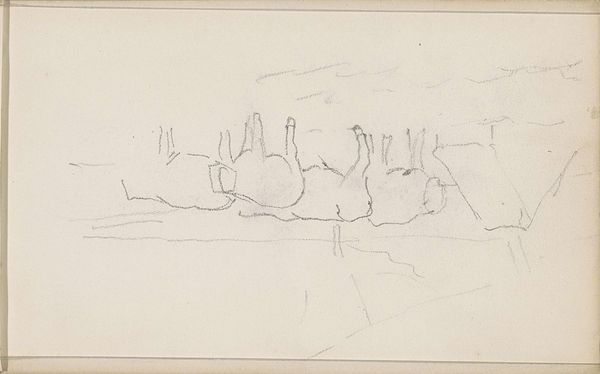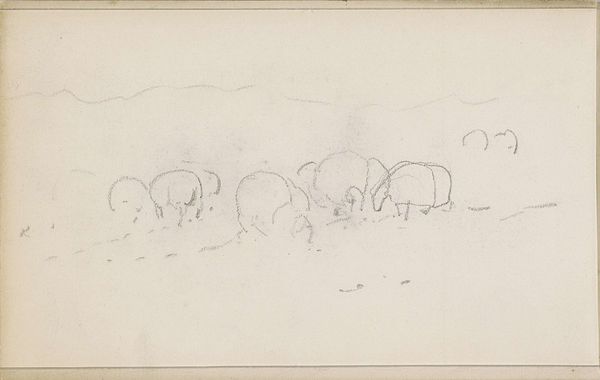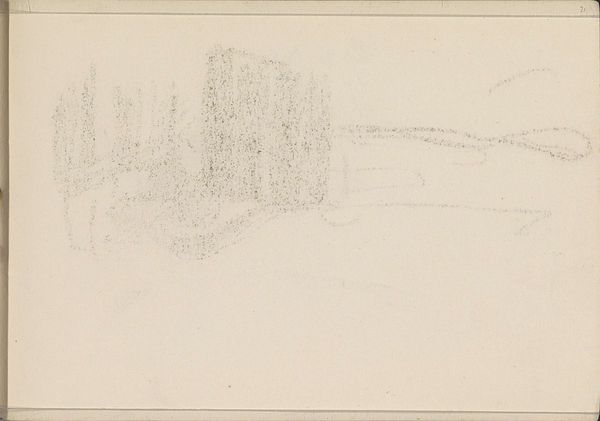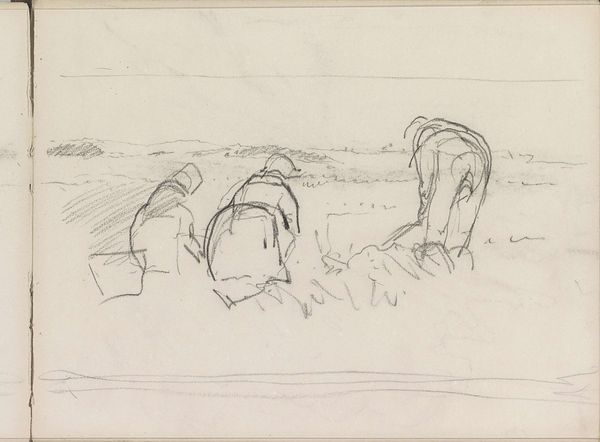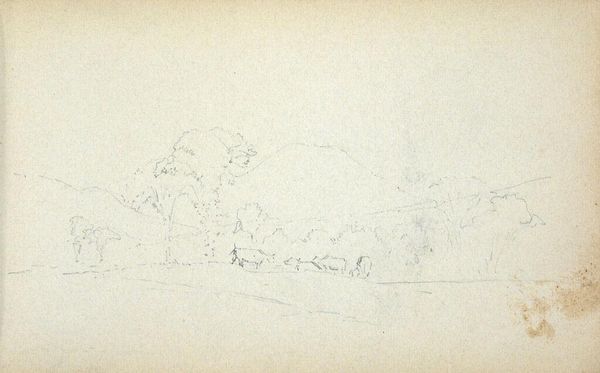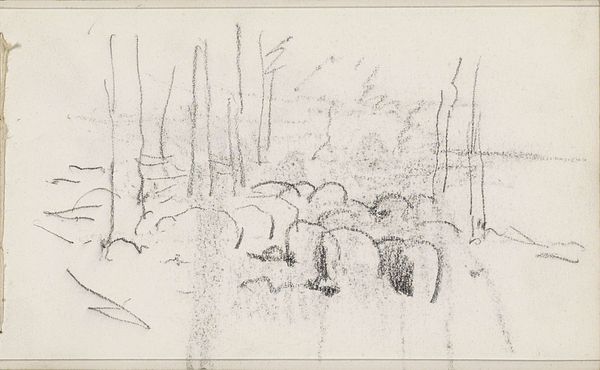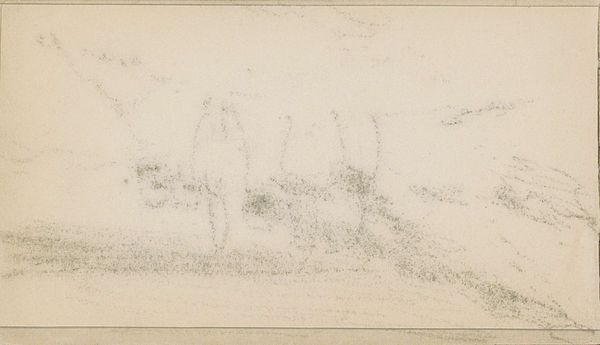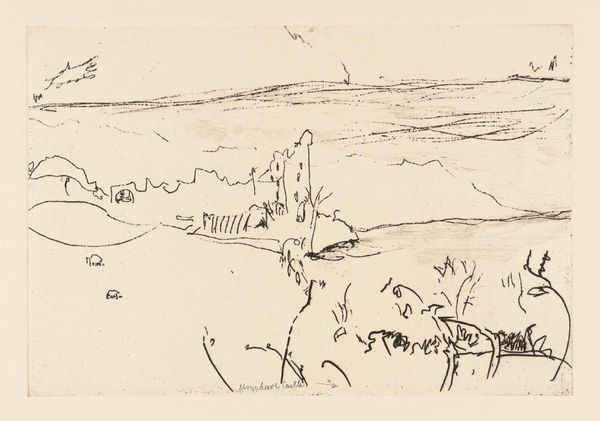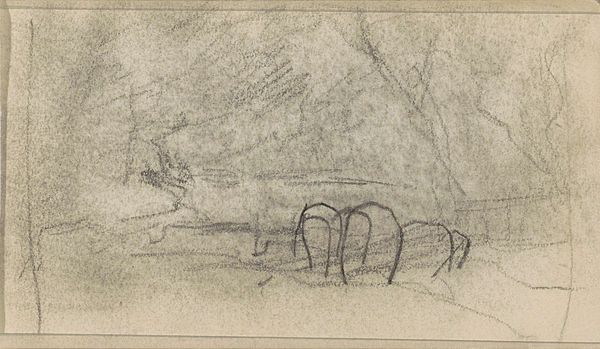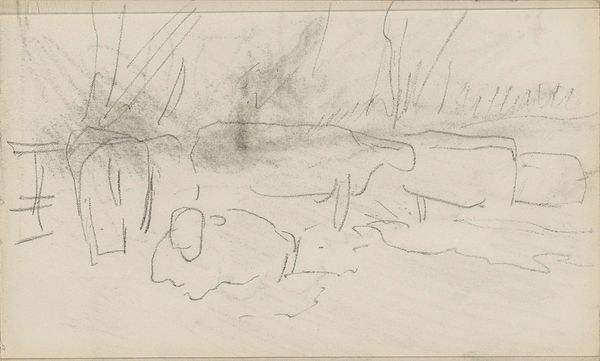
drawing, paper, pencil, pastel, frottage
#
drawing
#
impressionism
#
pencil sketch
#
landscape
#
paper
#
pencil
#
pastel
#
frottage
#
realism
Copyright: Rijks Museum: Open Domain
Editor: This delicate pencil drawing, "Grazende Schapen," or "Grazing Sheep" by Anton Mauve, sketched sometime between 1848 and 1888, has a sort of quiet simplicity that I find really appealing. It's unassuming but beautifully captures a rural scene. How do you see this piece within its historical context? Curator: It's interesting that you find it simple, because simplicity was, in itself, a statement. Think about the late 19th century – the rise of industrialization, urbanization. Artists like Mauve were reacting against that, turning to the rural landscape, celebrating agrarian life as a source of authenticity. This drawing, with its focus on working animals, positions itself within a broader social and cultural debate about progress and tradition. Do you notice how the sheep are presented? Editor: They're not idealized at all; they just seem to be...sheep. Ordinary, going about their day. Curator: Exactly. Mauve wasn't interested in grand narratives or heroic figures. His focus was on the everyday life of ordinary people and animals in the Dutch countryside. He captures the mood more than an exact copy of nature. But is this also perhaps reflective of the rising power and social realism influencing that era’s public view of art? Editor: You mean, was he deliberately creating art that the average person could connect with? Art that reflected their own realities? Curator: Precisely. Artists started moving away from creating solely for the wealthy patrons, they started democratising art for the public! He might not have been overtly political, but his choice of subject matter, his rejection of academic styles, were all ways of aligning himself with a particular social and cultural viewpoint. Editor: So, it's more than just a pretty landscape; it’s also a social commentary in a way. I never thought of it that way before! Curator: Art often operates on many levels. Exploring those levels gives you a much deeper insight. Editor: Definitely. Now I’ll always remember this drawing, and Mauve’s work in general, within that social framework! Thanks for opening my eyes!
Comments
No comments
Be the first to comment and join the conversation on the ultimate creative platform.
